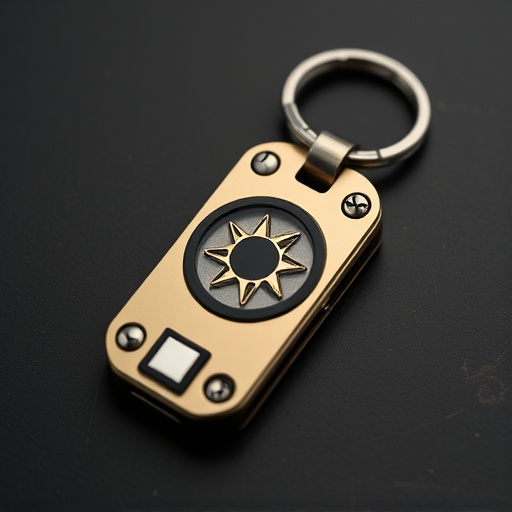In the U.S., the legal status of discrete keychain protection devices varies widely state-by-state, creating a complex regulatory landscape. While some states permit open carry, others mandate permits or restrict use to home defense. Citizens must understand these regulations, check local ordinances, and stay informed about changes to ensure compliance and responsible self-defense. Carrying such devices, though designed for portability, can have legal consequences without proper knowledge of state-specific laws.
“Uncover the legal complexities surrounding self-defense keychains with our comprehensive state-by-state analysis. Understanding the legality of carrying discrete keychain protection devices is crucial for citizens seeking personal safety. This article navigates through varying state regulations, shedding light on what’s permitted and what’s not. From the features and functionality of these compact defenses to rights vs. regulations, gain insights into empowering yourself while adhering to legal boundaries. Discover how to stay protected with a focus on discrete keychain protection devices.”
- Understanding Self-Defense Keychain Legalities: A State-by-State Analysis
- Discrete Keychain Protection Devices: Features and Functionality
- Navigating Legal Requirements for Carrying Self-Defense Tools
- Rights vs. Regulations: What Every Citizen Should Know
Understanding Self-Defense Keychain Legalities: A State-by-State Analysis
In the United States, the legal landscape surrounding self-defense keychain protection devices varies significantly from state to state, reflecting diverse cultural and legislative perspectives on personal safety. What may be considered an acceptable form of defense in one state could be strictly regulated or even prohibited in another. This is particularly true for discrete keychain protection devices, designed to be easily concealed and accessible.
For individuals looking to arm themselves with such a device, understanding the legal implications is crucial. Some states allow for the open carry of certain self-defense tools, including keychains equipped with defensive features, while others mandate permits or restrict their use to specific situations like home defense. Still, other states have no specific laws governing the carrying of self-defense keychains, leaving citizens in a state of uncertainty regarding their rights and responsibilities. Navigating these complexities requires a deep dive into state-by-state regulations to ensure compliance with local laws.
Discrete Keychain Protection Devices: Features and Functionality
Discrete keychain protection devices are compact self-defense tools designed to fit comfortably on a keyring. These devices often feature a small, easily concealable form factor, allowing users to carry them discreetly while going about their daily lives. Beyond their compact size, these tools offer various features that enhance their effectiveness as personal safety aids. Many models incorporate sharp blades or spikes that can be quickly deployed upon encountering a threat, providing a deterrent and potential means of escape.
The functionality of these devices is typically straightforward but robust. A simple twist, flip, or press of a button can trigger the mechanism, revealing the protective element. This immediate accessibility ensures users have a responsive option when facing dangerous situations. With their discreet nature and versatile features, discrete keychain protection devices offer individuals an added sense of security without sacrificing convenience or style.
Navigating Legal Requirements for Carrying Self-Defense Tools
Navigating the legal landscape surrounding self-defense tools, like discrete keychain protection devices, is a crucial step before considering carrying such items. Each state in the U.S. has its own set of regulations regarding hidden weapons and personal defense devices. These laws can vary widely based on factors like the type of device, where and how it can be carried, and even the circumstances under which it can be used. For instance, some states permit certain self-defense tools for individuals with concealed carry permits, while others may restrict their use to law enforcement or allow them only in specific situations.
Understanding these legal requirements is essential to ensure compliance and avoid potential consequences. Discrete keychain protection devices, designed to be easily portable and nearly invisible, must adhere to state regulations without drawing undue attention. This often involves checking local ordinances, seeking guidance from legal experts, and staying informed about any changes in the law that could impact your rights and responsibilities as a civilian carrying self-defense tools for personal safety.
Rights vs. Regulations: What Every Citizen Should Know
In many states, citizens have the right to protect themselves and their belongings, which includes carrying discrete keychain protection devices for self-defense. However, it’s crucial to understand that these rights come with certain regulations. The legal requirements vary widely from state to state, so what is permitted in one place might be restricted or even illegal in another. For example, some states allow only certain types of self-defense devices, like pepper spray or personal stun guns, while others have strict limitations on the size, shape, and force of these tools.
When considering self-defense keychain protection devices, it’s essential to stay informed about local laws. Carrying a concealed weapon, even in a small and discrete form, can trigger legal consequences if used inappropriately or without understanding the specific rules of your state. Always check with your local law enforcement or legal professionals for the most up-to-date information on what is legal and how to use these devices responsibly.
Understanding the legal landscape surrounding self-defense keychains is essential for citizens seeking personal protection. Each state has its own regulations, ranging from strict prohibitions to lenient guidelines. This article’s state-by-state analysis illuminates these nuances, empowering individuals to make informed decisions about carrying discrete keychain protection devices. By knowing their rights and adhering to local laws, citizens can ensure they remain within legal boundaries while prioritizing safety.
